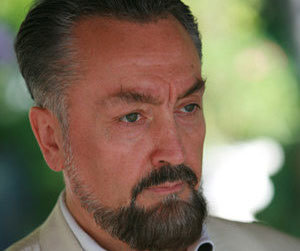The Road to peace in Syria

Truly the only way to end the civil war in Syria is cooperation between regional countries including Turkey, Russia and Iran. The involvement of other foreign powers would not be able to offer a permanent solution. Therefore, it is great to see that new developments reflect this sentiment and a regional cooperation is being built. The meeting that took place on December 20, 2016 in Moscow between the foreign ministers of Russia, Turkey and Iran, which resulted in a joint declaration, marked the beginning of such cooperation.
The declaration dealt with crucial issues such as the preservation of the unity, independence and territorial integrity of Syria, the importance of a diplomatic solution rather than a military one and increasing the ceasefires across the region to allow the transfer of humanitarian aid to areas where they are urgently needed. Indeed, only days after this declaration, on December 30, 2016, a general ceasefire went into effect.
After more than six years of war, the cooperation between the three key regional players for the first time created a prospect for peace in Syria. It was also a clear reminder that the problems in the region can be resolved only through cooperation. In fact, the Geneva meetings that were previously led by the U.S. and Western coalitions failed to offer a solution or contribute to the peace process in the country.
The Moscow agreement also paved the way for the Astana talks, which represented a whole new era for the road to peace in Syria. During the Astana meetings, which were held on January 23-24, February 15-16 and March 14-15, it was decided that Russia, Iran and Turkey would be guarantors of ceasefire and that the three countries act as observers to ensure the continuation of the ceasefire. The UN, the Syrian government and the Syrian opposition also accepted the decision.
In the summit held in Tehran on April 19-20, Iran, Turkey and Russia once again came together and agreed on the topics to be discussed during the fourth Astana meeting. They also discussed prisoner exchanges and decided to create four de-escalation zones in Syria.
The agreement signed by the three countries designated the zones as Idlib, parts of Lattakia, Aleppo, Hama and Homs and Damascus/Eastern Ghouta as well as some parts of Daraa and Quneitra provinces.
In fact, President Erdogan and President Putin had already announced their agreement on the de-escalation zones in Syria when they met in Sochi before the fourth meeting. In other words, another very important step was taken towards lasting peace in Syria through an agreement between Russia, Iran and Turkey. For the first time, a new era of non-violence started in Syria. The decision on the zones also lent a positive atmosphere to the sixth stage of the Syrian talks held in Geneva.
Interestingly, certain Western media outlets seem to be in a state of panic in the face of these developments. Many analysts believe that the current display of strong collaboration and power by the Turkey-Iran-Russia nexus meant a decline in U.S. influence in the region.
The criticism campaign, led by some British media outlets as usual, portrayed the coalition of Iran, Russia and Turkey as an anti-NATO structure. For instance, The Economist announced that this friendship should be of concern to NATO.
TIME on the other hand, conjured up catastrophic scenarios because the de-escalation zones did not cover the entire country –even though this is only natural, since this is only the first step– and claimed that the solution was unacceptable for the opposition. In a pessimistic, provocative and divisive manner, it railed against a historic plan that promised to bring peace to this country, which has been ravaged by war for the past six years.
The panic seen among the British deep state members, the maestro of global imperialism, is clear proof that the two large Muslim countries of the region, together with Russia, are doing the right thing by cooperating to help Syria. Naturally, Iran, Turkey and Russia gaining power and influence in the region is not in the best interests of this deep structure, which has worked on its plans for the Middle East for centuries through countless plans and plots.
It is a historical fact that throughout history, there have been countless plans and plots to prevent and destroy the friendship between these three countries. Numerous embargos and sanctions were implemented against them. However, the good news is that throughout history, the three countries never fell into those traps. Despite the sundry plots and ruses, Iran, Turkey and Russia have maintained their friendship which always produced good results.
And now Iran, Turkey and Russia joining forces to bring peace to Syria, and acting in complete accord, is going to be further proof that such sinister games cannot and will not succeed. Particularly, it is crucial that two fraternal countries, Iran and Turkey, continue to strengthen their bonds and engage in the highest level of economic and political cooperation. By the grace of God, their cooperation will be the strongest assurance of peace, stability, development and welfare in the region.
Leave a Comment